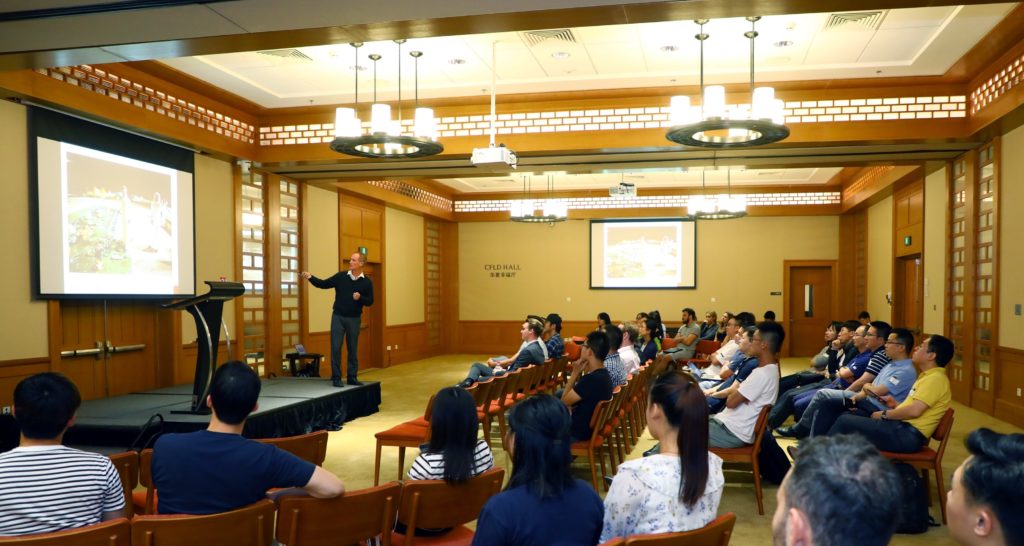The following is an excerpt from our book, the One Hour China Consumer Book. It is our best explanation for how the NBA has been so hugely successful in China.
“This story begins in 1978-9 with two events.
- First, Abe Pollin, owner of the then champion Washington Bullets, received an invitation from Deng Xiaoping to come to China. While both China and the US had exchanged amateur athletic delegations prior, the Washington Bullets’ visit to China was the first time a professional North American team had visited the newly opened China.
- Second, the NBA’s long-time outside lawyer David Stern joined the company as General Counsel. A New York City native, David had attended Rutgers University and Columbia Law School prior to becoming a lawyer at Proskauer Rose in 1966. And he had been an outside lawyer for the NBA since almost the day he graduated law school. By the time he joined the NBA as General Counsel in 1978 (and also became Executive Vice President) he had worked with the NBA for 12 years. And within 5 years of joining, he had succeeded Larry O’Brien as commissioner.
David ended up being the NBA commissioner for 30 years. And during that period, he turned the NBA into a global sports powerhouse. But his success in China is arguably his most impressive. And his first major move in the PRC happened in 1987.
In 1987, the NBA went to China and struck a deal with Chinese State television provider CCTV. The deal was that the NBA would send videotapes with game footage for CCTV to broadcast. And they would divide the advertising revenue from these broadcasts (which was negligible at that time). These NBA highlights tapes were sent weekly from New York and began to make basketball free to watch across much of China. Beginning in 1987, Chinese viewers began to be introduced to the NBA and to players like Magic Johnson and Larry Bird.
There was also some good luck early on. The same year David Stern became commissioner, Michael Jordan and Charles Barkley both joined the league. Additionally, the Chicago Bulls then arrived and became a global phenomenon. And in 1992, basketball appeared in the Olympics (which has big China viewership) and the world was introduced to the American “dream team”. By the early 1990’s, the CCTV-NBA viewership and advertising revenues had began to grow. And soon NBA games were being shown by province- and city-level broadcasters as well as by CCTV.
The strategy the NBA pursued in China was one of free mass dissemination. David Shoemaker, CEO of NBA China, later stated, “It’s been very important for the NBA since we started in the 1980’s to make our games accessible to as broad an audience as possible.” However, free dissemination meant revenue would have to come from advertisements or some other source. It also required successfully partnering with CCTV, a strategic and sometimes bureaucratic Chinese SOE. So it sounds logical but it is not as easy as it seems. It is worth taking a moment to compare the NBA’s approach with that of the English Premier League (EPL).
Soccer also has a long history in China. Similar to basketball, there was some level of baseline interest, if not enthusiasm, for the sport. And for many years, the EPL had a similar content partnership with CCTV. But the model they use in most foreign countries is actually pay-per-view. This customer-pays-for-content arrangement limits their viewership, especially in poorer countries. But it allows the EPL to attract viewers with higher incomes. It attracts more passionate viewers. And, most importantly, it means cash up front from the local broadcast partner. That helps the soccer teams purchase top players. And it reflects that fact that the soccer teams operate relatively independently in terms of money, with the EPL more of an umbrella organization. EPL’s total broadcast agreements are worth approximately $2.5B per year, with about half of that coming from overseas rights.
In 2007, the EPL signed a pay-per-view agreement with Chinese WinTV, ending the free availability of EPL through CCTV. It was reported that WinTV, run by State-owned Guangdong Provincial Television, won the EPL rights with an offer of $50M for three seasons.
The results were disastrous. The Guardian reported that EPL’s viewership in China dropped from 30M to approximately 20,000 following the move to pay-per-view. And within the first year, the WinTV yearly subscription price for EPL was reportedly cut from $250 to $77. The move misjudged the Chinese consumer’s willingness to pay. It also misjudged the role of strategic SOEs in China’s media landscape. CCTV is still one of the few major licensed Mainland television broadcasters.
In contrast, the NBA has continued their long partnership with CCTV. For the recent NBA finals in the US, CCTV sent over 50 journalists to cover the two-week series. No other country sent a group even half that size. Further, the NBA’s deal with CCTV has increased over the years and now includes broadcasts on seven of CCTV’s regional radio and television providers.
And within all this, the NBA has retained their intellectual property. According to Joseph Ravitch of the Raine Group, “The key to that deal is that NBA China owns all of the rights, past, present and future, to all NBA trademarks, all NBA content, all the video past, present and future, for greater China.”
By virtue of a successful partnership with CCTV, one of the few broadcast channels available at that time, the NBA had become one of the major sports entertainment companies in China. Was this because Chinese viewers really liked basketball? Yes. Was it because of Michael Jordan? Probably. Or was it because it was one of the few things on when State TV was dominant? Definitely.”
Part 2 is continued here.
The above excerpt is from my book The One Hour China Consumer Book. I think it is the best thing I have written. Available here.
Thanks for reading, jeff
——-
I write, speak and consult about how to win (and not lose) in digital strategy and transformation.
I am the founder of TechMoat Consulting, a boutique consulting firm that helps retailers, brands, and technology companies exploit digital change to grow faster, innovate better and build digital moats. Get in touch here.
My book series Moats and Marathons is one-of-a-kind framework for building and measuring competitive advantages in digital businesses.
Note: This content (articles, podcasts, website info) is not investment advice. The information and opinions from me and any guests may be incorrect. The numbers and information may be wrong. The views expressed may no longer be relevant or accurate. Investing is risky. Do your own research.

